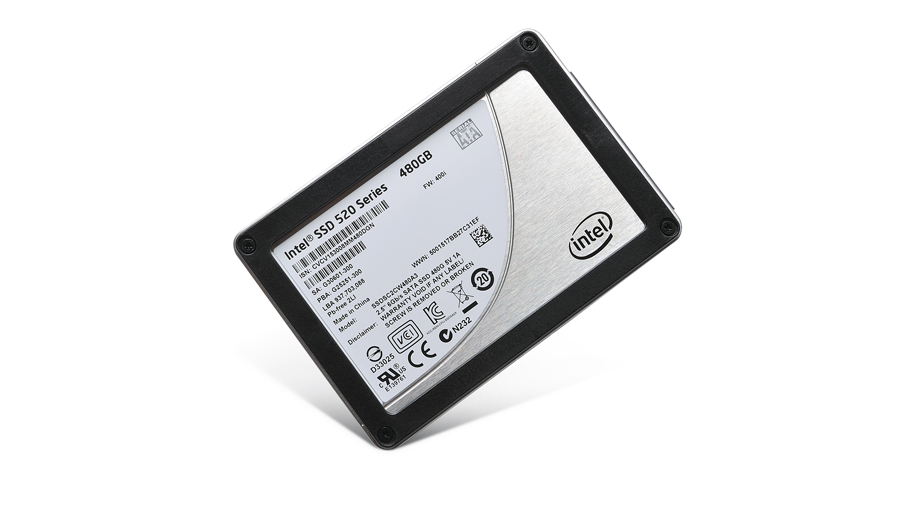Why you can trust TechRadar
The challenge for the 520 Series, therefore, isn't to match magnetic drive capacities. It's to take on Kingston's cheaper SSDNow V+200 480GB drive and beat smaller drives, including a pair of Intel's own 520 Series SSD 240GB, and perhaps a couple of Crucial M4s, or maybe some Samsung 830s.
In their favour, bigger drives have tended to be faster.
The reasons vary due to the drive's specifics, but broadly speaking it's a case of maximising the bandwidth of the SSD controllers' memory channels. That's especially true of the SandForce SF-2281 controller used by Intel in the 520 Series.
It isn't terribly happy at lower capacities.
In that context, you might be expecting something spectacular from this 480GB effort. Unfortunately, you can have too much of a good thing.
You won't spot an issue if you refer to the peak sequential throughput, but shift your attention to incompressible data workloads or random access and the wheels begin to fall off.
The read speeds are very competitive, both against the Crucial M4 and smaller versions of the 520 Series, but the write performance is frankly lamentable.
For instance, 12MB/s in the 4K random write test is less than a quarter the result achieved by the 520 Series 240GB model. We were expecting the 480GB to be a little slower thanks to lower IOPs numbers claimed by Intel. But we weren't prepared for performance this sluggish.
It's also damning that the Kingston drive manages faster random 4K write results.
It's only by a 2MB/s margin, but for around £300 (around $470) less that's a serious let down.
We liked
The Intel drive is faster across the rest of the benchmarks, but it's only the sequential read test that gives it a serious lead.
It's a shame because there's plenty to like about the 480GB Intel 520 Series SSD as an overall package. You get a combination of SandForce controller technology with Intel's industry leading validation and reliability.
We disliked
The problem is, for less than the price of this 480GB drive, you can grab a pair of 240GB SSDs, which are faster in isolation and offer the potential to blow everything else away when configured as a speedy RAID 0 volume, even if that means missing out on TRIM.
Verdict
Intel plus SandForce and a ton of NAND chips ought to be a winner. But poor write performance spoils the party.
Technology and cars. Increasingly the twain shall meet. Which is handy, because Jeremy (Twitter) is addicted to both. Long-time tech journalist, former editor of iCar magazine and incumbent car guru for T3 magazine, Jeremy reckons in-car technology is about to go thermonuclear. No, not exploding cars. That would be silly. And dangerous. But rather an explosive period of unprecedented innovation. Enjoy the ride.
